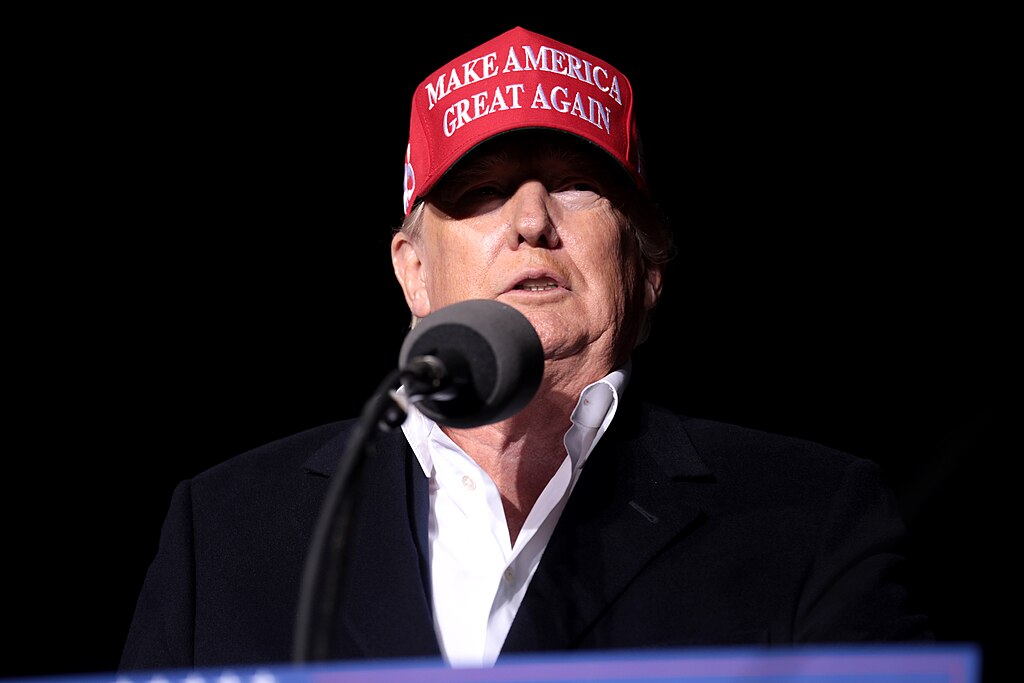A recent analysis by the Media Research Center (MRC) has raised concerns about media bias, revealing that 95% of news coverage by ABC, CBS, and NBC regarding former President Donald Trump was negative following an alleged second assassination attempt. The findings have reignited a long-standing debate over the mainstream media’s treatment of Trump and its broader impact on public perception, particularly in the wake of such a high-stakes event.
According to the MRC, the three major news networks focused overwhelmingly on negative narratives when reporting on Trump after the alleged assassination attempt. The analysis claims that despite the seriousness of the incident, the media continued to frame Trump in a predominantly critical light, prioritizing discussions on his controversial statements, legal challenges, and ongoing investigations. This report has sparked further questions about whether the media is delivering balanced coverage or reinforcing partisan biases.
For years, Trump has been at the center of disputes over media bias, frequently accusing major news outlets of portraying him unfairly. His presidency was marked by an adversarial relationship with the press, and the recent findings by the MRC have once again thrust that contentious dynamic into the spotlight. Critics of the media argue that such overwhelmingly negative coverage in the aftermath of an alleged assassination attempt reveals a deep-seated hostility toward Trump that is not reflective of fair journalism practices.
On the other hand, defenders of the networks’ coverage contend that the negative reporting reflects the newsworthiness of Trump's legal and political controversies, which continue to dominate headlines. They argue that the critical tone is driven by the substance of the stories, not by any agenda against the former president. Trump’s post-presidential legal battles, including investigations into his business dealings and his role in the January 6 Capitol insurrection, have provided media outlets with significant material for scrutiny.
The MRC’s report has also raised broader concerns about how media narratives shape public perception, particularly around polarizing figures like Trump. With the former president considering another run for the White House in 2024, the tone of media coverage could play a crucial role in influencing voters’ opinions. Whether the overwhelmingly negative portrayal of Trump by major news outlets represents an accurate reflection of his actions or an inherent bias against him will likely be debated as the election cycle intensifies.
The findings of the MRC analysis also coincide with growing mistrust of traditional media among conservative voters. Polls have shown that a significant portion of Republicans view mainstream media with skepticism, often turning to alternative outlets they perceive as more balanced. The MRC’s report is likely to reinforce those sentiments and fuel further calls for media reform to ensure more balanced reporting.
As Trump continues to dominate the political landscape, the scrutiny surrounding media coverage of his actions will remain a critical issue. The MRC analysis has added another layer of complexity to the ongoing debate over media bias, further highlighting the challenges of navigating impartial journalism in a highly polarized environment.



 Santander’s $12.2B Webster Financial Deal Faces Uncertainty Amid U.S.–Spain Trade Tensions
Santander’s $12.2B Webster Financial Deal Faces Uncertainty Amid U.S.–Spain Trade Tensions  Israel-Hezbollah Escalation Deepens Lebanon’s Role in Middle East Conflict
Israel-Hezbollah Escalation Deepens Lebanon’s Role in Middle East Conflict  Supreme Court Backs GOP Lawmaker in New York Redistricting Fight Ahead of Midterms
Supreme Court Backs GOP Lawmaker in New York Redistricting Fight Ahead of Midterms  Australia Rules Out Military Involvement in Iran Conflict as Middle East Tensions Escalate
Australia Rules Out Military Involvement in Iran Conflict as Middle East Tensions Escalate  Rubio Says U.S. Would Not Target School After Deadly Iran Strike Reports
Rubio Says U.S. Would Not Target School After Deadly Iran Strike Reports  Does international law still matter? The strike on the girls’ school in Iran shows why we need it
Does international law still matter? The strike on the girls’ school in Iran shows why we need it  Trump’s Iran Strikes Spark War Powers Clash in Congress
Trump’s Iran Strikes Spark War Powers Clash in Congress  Middle East Conflict Escalates After Khamenei’s Death as U.S., Israel and Iran Exchange Strikes
Middle East Conflict Escalates After Khamenei’s Death as U.S., Israel and Iran Exchange Strikes  European Allies Deploy Air Defenses to Cyprus After Drone Attack on RAF Akrotiri Base
European Allies Deploy Air Defenses to Cyprus After Drone Attack on RAF Akrotiri Base  Melania Trump Chairs Historic U.N. Security Council Meeting on Children Amid Iran Conflict
Melania Trump Chairs Historic U.N. Security Council Meeting on Children Amid Iran Conflict  Suspected Drone Strike Hits RAF Akrotiri Base in Cyprus, Causing Limited Damage
Suspected Drone Strike Hits RAF Akrotiri Base in Cyprus, Causing Limited Damage  Why did Iran bomb Dubai? A Middle East expert explains the regional alliances at play
Why did Iran bomb Dubai? A Middle East expert explains the regional alliances at play  Marco Rubio to Brief Congress After U.S.-Israeli Strikes on Iran
Marco Rubio to Brief Congress After U.S.-Israeli Strikes on Iran  Iran Detains U.S. Citizens Amid Escalating Conflict With the United States and Israel
Iran Detains U.S. Citizens Amid Escalating Conflict With the United States and Israel  U.S.-Israel War on Iran Escalates as Gulf Conflict Disrupts Oil, Air Travel and Regional Security
U.S.-Israel War on Iran Escalates as Gulf Conflict Disrupts Oil, Air Travel and Regional Security  Failure of US-Iran talks was all-too predictable – but Trump could still have stuck with diplomacy over strikes
Failure of US-Iran talks was all-too predictable – but Trump could still have stuck with diplomacy over strikes  Trump to Attend White House Correspondents’ Dinner 2026, Ending Long Boycott
Trump to Attend White House Correspondents’ Dinner 2026, Ending Long Boycott 






























